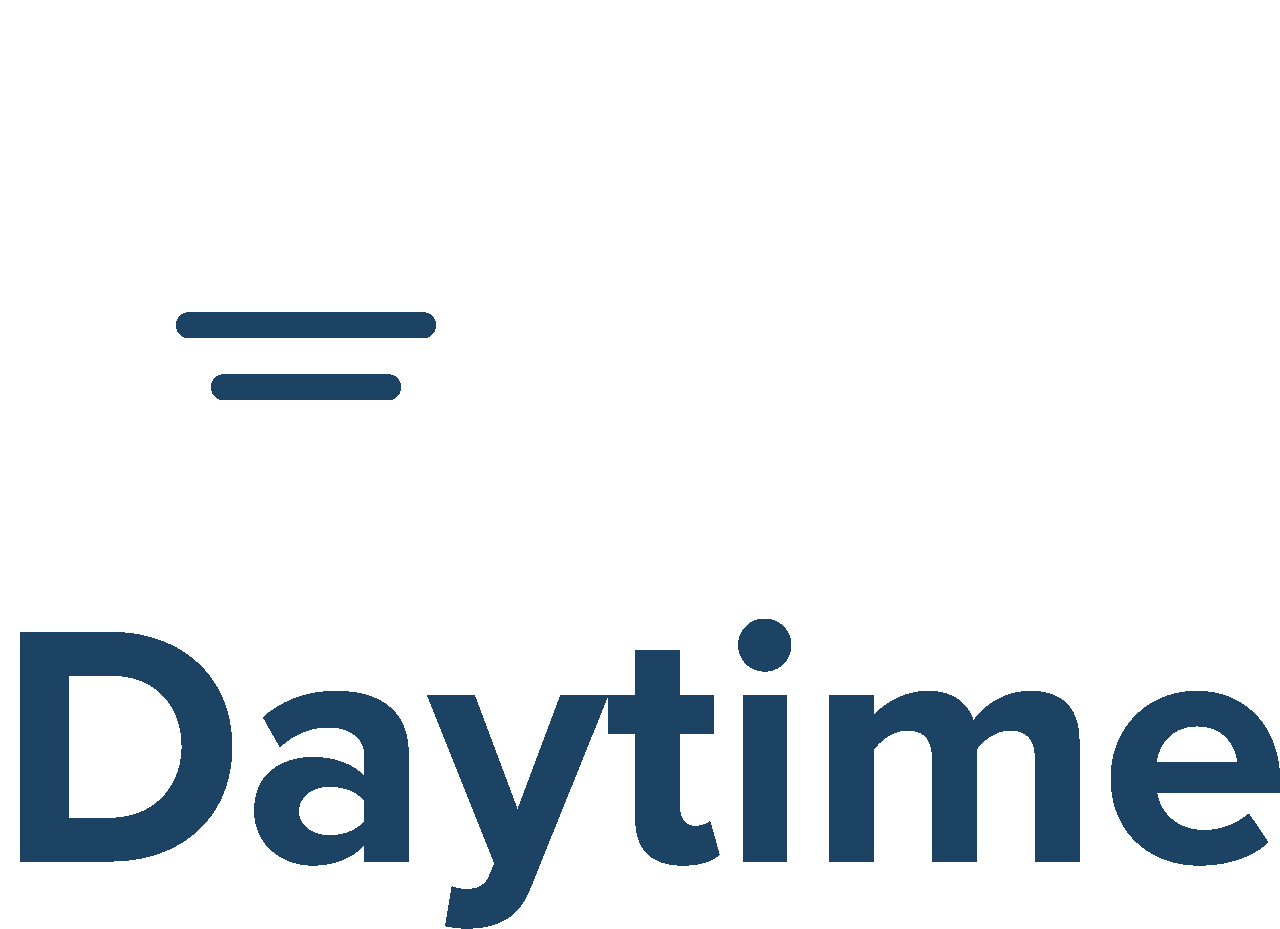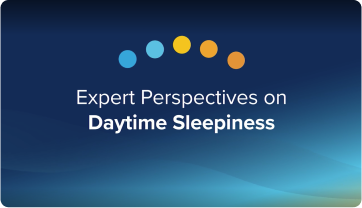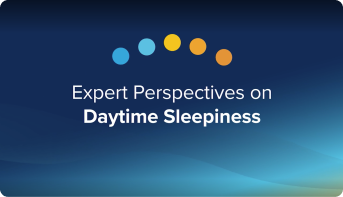
Sleep that improved over time*
QUVIVIQ 50 mg efficacy across both night & day
When taken every night, QUVIVIQ continued to improve sleep over time1*
*Improvements measured at Months 1 and 3.

Statistically significant nighttime improvements vs placebo1
Fall asleep faster (lps)
When taken every night,
QUVIVIQ 50 mg helps patients fall asleep faster1
Greatest efficacy was seen with QUVIVIQ 50 mg compared to placebo
Less time needed to fall asleep, minutes (Study 1, primary endpoint)
Latency to persistent sleep (LPS), assessed objectively by polysomnography
- 50 mg
- 25 mg
| STUDY 1 | Month 1 | ||
|---|---|---|---|
| Placebo | 25 mg | 50 mg | |
| Change from baseline LSM (95% CL) | -20 [-23, -17] | -28 [-32, -25] | -31 [-35, -28] |
| Difference to placebo LSM (95% CL) | -8* [-13, -4] | -11* [-16, -7] | |
| STUDY 1 | Month 3 | ||
|---|---|---|---|
| Placebo | 25 mg | 50 mg | |
| Change from baseline LSM (95% CL) | -23 [-26, -20] | -31 [-34, -27] | -35 [-38, -31] |
| Difference to placebo LSM (95% CL) | -8* [-12, -3] | -12* [-16, -7] | |
| STUDY 1 | Month 1 | Month 3 | ||||
|---|---|---|---|---|---|---|
| Placebo | 25 mg | 50 mg | Placebo | 25 mg | 50 mg | |
| Change from baseline LSM (95% CL) | -20 [-23, -17] | -28 [-32, -25] | -31 [-35, -28] | -23 [-26, -20] | -31 [-34, -27] | -35 [-38, -31] |
| Difference to placebo LSM (95% CL) | -8* [-13, -4] | -11* [-16, -7] | -8* [-12, -3] | -12* [-16, -7] | ||
*Doses that were statistically significantly superior (p<0.05) to placebo after controlling for multiple comparisons.
CL, confidence limit; LSM, least squares mean.
In Study 2, mean baseline LPS was 69 minutes for QUVIVIQ 25 mg (n=309) and 72 minutes for placebo (n=308).
| STUDY 1 | Month 1 | |
|---|---|---|
| Placebo | 25 mg | |
| Mean LPS | 50 min | 42 min |
| Change from baseline LSM (95% CL) | -20 [-24, -16] | -26 [-31, -22] |
| Difference to placebo LSM (95% CL) | -6 [-12, -1] | |
| STUDY 1 | Month 3 | |
|---|---|---|
| Placebo | 25 mg | |
| Mean LPS | 49 min | 39 min |
| Change from baseline LSM (95% CL) | -20 [-24, -15] | -29 [-33, -24] |
| Difference to placebo LSM (95% CL) | -9 [-15, -3] | |
| STUDY 2 | Month 1 | Month 3 | ||
|---|---|---|---|---|
| Placebo | 25 mg | Placebo | 25 mg | |
| Mean LPS | 50 min | 42 min | 49 min | 39 min |
| Change from baseline LSM (95% CL) | -20 [-24, -16] | -26 [-31, -22] | -20 [-24, -15] | -29 [-33, -24] |
| Difference to placebo LSM (95% CL) | -6 [-12, -1] | -9 [-15, -3] | ||
LPS reductions for QUVIVIQ 25 mg were not significant at Months 1 or 3 in Study 2.
Stay Asleep Longer (WASO)
When taken every night,
QUVIVIQ 50 mg helps patients spend more time asleep after onset
vs placebo and QUVIVIQ 25 mg1
Improved sleep maintenance, minutes (Study 1, primary endpoint)
Wake after sleep onset (WASO), assessed objectively by polysomnography
- 50 mg
- 25 mg
| STUDY 1 | Month 1 | ||
|---|---|---|---|
| Placebo | 25 mg | 50 mg | |
| Mean WASO | 92 min | 77 min | 65 min |
| Change from baseline LSM (95% CL) | -6 [-10, -2] |
-18 [-22, -15] |
-29 [-33, -25] |
| Difference to placebo LSM (95% CL) | -12* [-17, -7] |
-23* [-28, -18] |
|
| STUDY 1 | Month 3 | ||
|---|---|---|---|
| Placebo | 25 mg | 50 mg | |
| Mean WASO | 87 min | 73 min | 65 min |
| Change from baseline LSM (95% CL) | -11 [-15, -7] |
-23 [-27, -19] |
-29 [-33, -25] |
| Difference to placebo LSM (95% CL) | -12* [-17, -6] |
-18* [-24, -13] |
|
| STUDY 1 | Month 1 | Month 3 | ||||
|---|---|---|---|---|---|---|
| Placebo | 25 mg | 50 mg | Placebo | 25 mg | 50 mg | |
| Mean WASO | 92 min | 77 min | 65 min | 87 min | 73 min | 65 min |
| Change from baseline LSM (95% CL) | -6 [-10, -2] |
-18 [-22, -15] |
-29 [-33, -25] |
-11 [-15, -7] |
-23 [-27, -19] |
-29 [-33, -25] |
| Difference to placebo LSM (95% CL) | -12* [-17, -7] |
-23* [-28, -18] |
-12* [-17, -6] |
-18* [-24, -13] |
||
*Doses that were statistically significantly superior (p<0.05) to placebo after controlling for multiple comparisons.
CL, confidence limit; LSM, least squares mean.
In Study 2, mean baseline WASO was 106 minutes for QUVIVIQ 25 mg (n=309) and 108 minutes for placebo (n=308).
| STUDY 1 | Month 1 | |
|---|---|---|
| Placebo | 25 mg | |
| Mean WASO | 93 min | 80 min |
| Change from baseline LSM (95% CL) | -13 [-17, -8] |
-24 [-28, -20] |
| Difference to placebo LSM (95% CL) | -12* [-18, -6] |
|
| STUDY 1 | Month 3 | |
|---|---|---|
| Placebo | 25 mg | |
| Mean WASO | 91 min | 80 min |
| Change from baseline LSM (95% CL) | -14 [-19, -9] |
-24 [-29, -19] |
| Difference to placebo LSM (95% CL) | -10* [-17, -4] |
|
| STUDY 2 | Month 1 | Month 3 | ||
|---|---|---|---|---|
| Placebo | 25 mg | Placebo | 25 mg | |
| Mean WASO | 93 min | 80 min | 91 min | 80 min |
| Change from baseline LSM (95% CL) | -13 [-17, -8] |
-24 [-28, -20] |
-14 [-19, -9] |
-24 [-29, -19] |
| Difference to placebo LSM (95% CL) | -12* [-18, -6] |
-10* [-17, -4] |
||
*Doses that were statistically significantly superior (p<0.05) to placebo after controlling for multiple comparisons.
CL, confidence limit; LSM, least squares mean.
INCREASE TOTAL
SLEEP TIME (sTST)
When taken every night,
QUVIVIQ 50 mg helps patients gain more total
vs placebo and QUVIVIQ 25 mg1
Increased subjective total sleep time, minutes (Study 1, secondary endpoint*)
Subjective total sleep time (sTST), patient-reported
- 50 mg
- 25 mg
| STUDY 1 | Month 1 | ||
|---|---|---|---|
| Placebo | 25 mg | 50 mg | |
| Mean sTST | 338 min | 345 min | 358 min |
| Change from baseline LSM (95% CL) | 22 [16, 27] |
34 [29, 40] |
44 [38, 49] |
| Difference to placebo LSM (95% CL) | 13† [5, 20] |
22† [14, 30] |
|
| STUDY 1 | Month 3 | ||
|---|---|---|---|
| Placebo | 25 mg | 50 mg | |
| Mean sTST | 354 min | 358 min | 372 min |
| Change from baseline LSM (95% CL) | 38 [31, 44] |
48 [41, 54] |
58 [51, 64] |
| Difference to placebo LSM (95% CL) | 10† [1, 19] |
20† [11, 29] |
|
| STUDY 1 | Month 1 | Month 3 | ||||
|---|---|---|---|---|---|---|
| Placebo | 25 mg | 50 mg | Placebo | 25 mg | 50 mg | |
| Mean sTST | 338 min | 345 min | 358 min | 354 min | 358 min | 372 min |
| Change from baseline LSM (95% CL) | 22 [16, 27] |
34 [29, 40] |
44 [38, 49] |
38 [31, 44] |
48 [41, 54] |
58 [51, 64] |
| Difference to placebo LSM (95% CL) | 13† [5, 20] |
22† [14, 30] |
10† [1, 19] |
20† [11, 29] |
||
*Change from baseline at Months 1 and 3.
†Doses that were statistically significantly superior (p<0.05) to placebo after controlling for multiple comparisons.
CL, confidence limit; LSM, least squares mean.
In Study 2, mean baseline sTST was 308 minutes for QUVIVIQ 25 mg (n=309) and 308 minutes for placebo (n=308).
| STUDY 1 | Month 1 | |
|---|---|---|
| Placebo | 25 mg | |
| Mean sTST | 336 min | 353 min |
| Change from baseline LSM (95% CL) | 28 [22, 33] |
44 [38, 49] |
| Difference to placebo LSM (95% CL) | 16* [8, 24] |
|
| STUDY 1 | Month 3 | |
|---|---|---|
| Placebo | 25 mg | |
| Mean sTST | 347 min | 365 min |
| Change from baseline LSM (95% CL) | 37 [31, 43] |
56 [50, 63] |
| Difference to placebo LSM (95% CL) | 19* [10, 28] |
|
| STUDY 2 | Month 1 | Month 3 | ||
|---|---|---|---|---|
| Placebo | 25 mg | Placebo | 25 mg | |
| Mean sTST | 336 min | 353 min | 347 min | 365 min |
| Change from baseline LSM (95% CL) | 28 [22, 33] |
44 [38, 49] |
37 [31, 43] |
56 [50, 63] |
| Difference to placebo LSM (95% CL) | 16* [8, 24] |
19* [10, 28] |
||
*Doses that were statistically significantly superior (p<0.05) to placebo after controlling for multiple comparisons.
CL, confidence limit; LSM, least squares mean.

Statistically significant reduction in daytime sleepiness with QUVIVIQ 50 mg vs placebo
Patient-reported IDSIQ sleepiness domain score in a Study 1 secondary endpoint (25 mg did not reach significance in either Study 1 or 2).
IDSIQ sleepiness domain evaluated mental tiredness, physical tiredness, energy, and sleepiness
reduced daytime
sleepiness
- IDSIQ by Month
- IDSIQ by Week
When QUVIVIQ 50 mg was taken every night
Patients reported statistically significant reduction in daytime sleepiness2
Reduced daytime sleepiness compared with placebo (Study 1, secondary endpoint)
Improvements in IDSIQ sleepiness domain score, patient-reported
- Improvement in IDSIQ sleepiness domain score was significant at Month 1 and Month 3 for QUVIVIQ 50 mg in a single adequate and well-controlled study
- Sleepiness domain scores for QUVIVIQ 25 mg were not significant at Month 1 or Month 3 in either Study 1 or Study 2
| STUDY 1 | Month 1 | |
|---|---|---|
| Placebo | 25 mg | |
| Mean LPS | 50 min | 42 min |
| Change from baseline LSM (95% CL) | -20 [-24, -16] | -26 [-31, -22] |
| Difference to placebo LSM (95% CL) | -6 [-12, -1] | |
| STUDY 1 | Month 3 | |
|---|---|---|
| Placebo | 25 mg | |
| Mean LPS | 49 min | 39 min |
| Change from baseline LSM (95% CL) | -20 [-24, -15] | -29 [-33, -24] |
| Difference to placebo LSM (95% CL) | -9 [-15, -3] | |
| STUDY 1 | Month 1 | Month 3 | ||
|---|---|---|---|---|
| Placebo | 50 mg | Placebo | 50 mg | |
| Change from baseline LSM (95% CL) | -2.0 [-2.6, -1.5] | -3.8 [-4.3, -3.2] | -3.8 [-4.5, -3.1] | -5.7 [-6.4, -5.0] |
| Difference to placebo LSM (95% CL) | -1.8* [-2.5, -1.0] | 1.9† [-2.9, -0.9] | ||
*p<0.0001.
†p=0.0002.
CL, confidence limit; LSM, least squares mean.
When QUVIVIQ 50 mg was taken every night
Reductions in daytime sleepiness were reported at Week 1 and continued to improve over time2,4
Reduced daytime sleepiness compared with placebo (Study 1, secondary endpoint)
Improvements in IDSIQ sleepiness domain score, patient-reported
- Improvement in IDSIQ sleepiness domain score was significant at Month 1 and Month 3 for QUVIVIQ 50 mg in a single adequate and well-controlled study
- Sleepiness domain scores for QUVIVIQ 25 mg were not significant at Month 1 or Month 3 in either Study 1 or Study 2
The safety and efficacy of QUVIVIQ was evaluated in 2 multicenter, randomized, double-blind, placebo-controlled, parallel-group studies over 3 months, followed by a 40-week extension safety study. Study 1 (N=930) included QUVIVIQ 25 mg (n=310), QUVIVIQ
Primary efficacy endpoints:
Change from baseline to Month 1 and Month 3 measured by polysomnography in:
- Latency to Persistent Sleep (LPS)
- Wake After Sleep Onset (WASO)
Secondary efficacy endpoints:
- Patient-reported total sleep time (sTST)
- Patient-reported sleepiness domain of the Insomnia Daytime Symptoms and Impacts Questionnaire (IDSIQ)3
Select inclusion criteria
- Age ≥18 years
- Insomnia according to DSM-5 criteria
- Sleep Severity Index ≥15
Select exclusion criteria
- Any other condition causing insomnia
- Ongoing cognitive behavioral therapy, shift work, travel over time zones
Patient population
- QUVIVIQ was evaluated in a total of 1,236 patients, including ~40% elderly patients (≥65 years old)
- A total of 576 patients were treated with QUVIVIQ for at least 6 months, including 331 treated for at least 12 months
IDSIQ is the first patient-reported outcome tool developed and validated according to FDA guidelines that can evaluate daytime symptoms in patients with insomnia.3
IDSIQ is a validated tool based on the Daytime Insomnia Symptom Scale and includes 14 items across 3 domains: sleepiness, mood, and alert/cognition.3
A key secondary endpoint in the QUVIVIQ clinical trials was change from baseline in the IDSIQ sleepiness domain score at Month 1 and Month 3. Patients completed daily self-assessments about how energetic, mentally and physically tired, or sleepy they felt during treatment with QUVIVIQ.2,3


HEAR FROM YOUR PEERS
Sleep experts discuss why they choose QUVIVIQ for their patients
Watch expert perspectives*Improvements measured at Months 1 and 3.
IDSIQ, Insomnia Daytime Symptoms and Impacts Questionnaire; LPS, latency to persistent sleep; WASO, wake after sleep onset; sTST, subjective total sleep time.


STAY IN THE KNOW
Sign up to receive
updates on QUVIVIQ
FAQs
Have a question?
RESOURCES
More about QUVIVIQ
contact us
Idorsia Medical Information